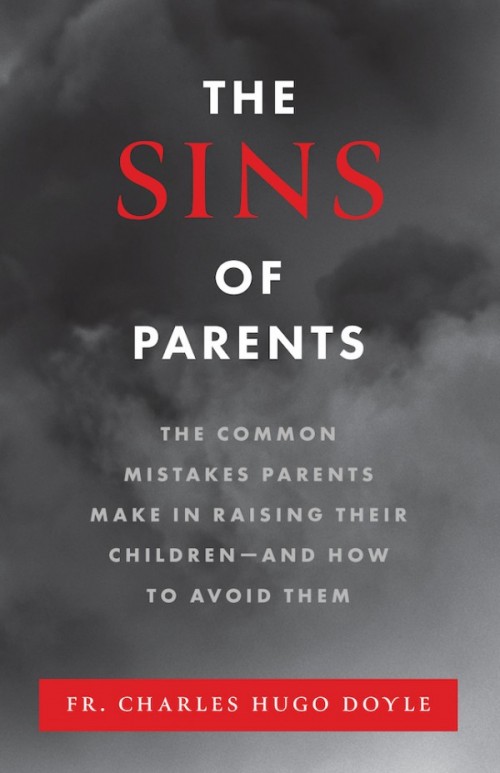Many years ago, I read a story that went the rounds of the newspapers that deeply impressed me. A little Madison boy, nine years of age, an orphan from his earliest infancy, was adopted by a farmer named Marquette, from a foundling home in Milwaukee. Some time after his establishment in his new family, the little boy had occasion to observe some very bad conduct on the part of the farmer’s wife and thought it his duty to inform the husband. But the woman denied the charge so vehemently that the farmer was convinced that his wife had been calumniated. The wife then insisted that the boy should be whipped till he retracted what he had said; the husband, taking a whip, suspended the child from a beam in the room and whipped him for nearly two hours, with so much barbarity that the blood streamed on the ground. At last he stopped and asked the child if he still persisted in what he had said. “Father,” said he, “I have told the truth, and I cannot retract by telling a lie.” Trampling underfoot every better feeling, the cruel woman again insisted that her husband should continue what she called his duty. The blows commenced again with renewed fury, and they continued till the poor little fellow fell almost lifeless into the arms of his executioner, to whom he said, throwing his little arms round his neck, “Father, Father, I am dying! I have told the truth!” And he expired. The court at Madison took cognizance of the affair. The miserable woman was convicted of the crime of which she was accused, her husband was condemned as guilty of murder on the person of his adopted child; finally, the young orphan was proclaimed the martyr of truth.
Somewhere along the line, that little boy had been taught the value of truth, and it meant more to him than life itself. Today, unfortunately, children do not hold truth in such high esteem; in fact, many children are taught to lie by their very own parents. Veracity is a moral virtue that inclines one to speak the truth under all circumstances. It excludes all hypocrisy and double-dealing and, likewise, inclines one faithfully to execute one’s promises. Lying is technically defined as speaking deliberately against one’s mind. Its malice lies in the fact that it involves using a natural faculty in a way that is directly contrary to its natural end or purpose and, as such, is intrinsically evil and forbidden by the eighth commandment and numerous other Scriptural teachings, such as those of St. Paul, who says, “Wherefore putting away lying, speak ye the truth every man with his neighbor; for we are members one of another” (Eph. 4:25).
There is no such a thing as a congenital liar. Liars are made, not born. If parents look back to the earliest days of their children’s dawn of reason, they will recall that the little child was by its nature painfully truthful. The length of time it took the child to relate the story of an incident was exasperating. This was due to its desire to be precise. Later, because of the impatience of the parent, of a lack of sympathetic understanding plus the lack of parental imagination, the child began to realize that there was little percentage in precision and truth.
Mendacity is a progressive thing on the part of many parents. They begin with the “stork” chestnut, the Santa Claus fable, “the big bogeyman in the closet” routine, and the foundation is nicely laid. When a parent promises to leave the light on in the child’s room when it goes to sleep, the light should be left on. If a promise is made to the child—“I’ll be right downstairs if you need me”—and the parent instead goes off to a neighbor’s for a canasta bout, how will the child learn to be truthful? When a child is older and asks for a nickel or dime for an ice-cream cone and is told “I don’t have a cent in the house,” and when, a few moments later, he is dispatched to the corner store for a pack of cigarettes, somebody’s lying and the child knows “who.” If a child is sent to the door and told to “tell Mrs. Thingamabob that Mother is out,” when she is actually in housecoat and hair curlers at four in the afternoon, in the next room, who is teaching whom to lie?
Unfortunately, many parents make the telling of the truth a difficult affair. Suppose Angelina accidentally breaks that vase you won at the parish bingo and the child readily admits the deed; be wise enough to praise her for her truthfulness and let it go at that. There is no vase in all the world that is worth the price of truth, and if you are silly enough (and stupid enough) to fly off the handle and punish such an upright child, she will very likely try the next time to avoid a tongue-lashing or physical violence by lying. You will have taught her that there is no percentage in speaking the truth, so why bother?
When you have independent proof that your child has lied, a long face like a yard of broken concrete, and the upraised, threatening hand that looks to the child as big as a ham, is a poor way to impress him with his wrongdoing. Take him aside and calmly try to make him see what a terrible state the world would fall into if everybody told lies. Tell him about the eighth commandment, what it demands and what it forbids. Quote to
him the words of Holy Scripture that so impressed St. Andrew Avellino (d. 1608), who began his career as a priest-lawyer in Naples. One day, being very anxious to win a not-very-important case, he allowed himself to make a statement that he knew was untrue. Later, while reading his Bible, he came across these words found in the book of Wisdom (1:11): “The mouth that lieth killeth the soul.” He was so filled with remorse that he gave up altogether his work in the law courts and devoted himself to penance and the care of souls. (I was just thinking, as I write this, that we’d be awfully short of legal counsel if every barrister who ever told a lie did the same!)
✠
Editor’s note: This excerpt is adapted from The Sins of Parents: The Common Mistakes Parents Make in Raising Their Children – and How to Avoid Them, recently reprinted by Sophia Institute Press.
















